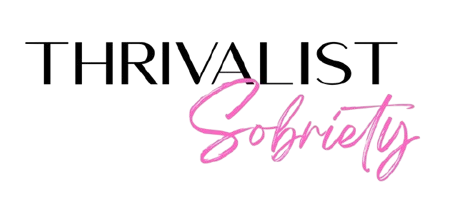
10 Strategies for Enjoying Sober Socialising (and Loving It!)
In this blog, Lucy shares her top 10 tips to enhance your sober socialising experience.
I remember in my 20’s and 30’s not even being able to fathom a social occasion without drinking. Pretty much everything I did socially involved drinking! Thankfully I have now realised that sober socialising is actually so much more fun, however it definitely took me some time to get to this place and lots of trial and error with how exactly to enjoy myself in my new found sobriety.
Many of our Thrivalist members share this common concern when embarking on their sobriety journey: How will they socialise and have fun without alcohol? The alcohol industry has done an exceptional job shaping our perceptions through advertising and messaging. But let’s remember, this is all a mirage.
The truth is, socialising and having fun don’t hinge on alcohol, and drinking doesn’t equate to fun. If you’re reading this, you’re on a path to redefining your relationship with alcohol and letting go of these misleading beliefs which is amazing.
In this blog, I want to offer you 10 tips to navigate social events without alcohol, and I promise, you can have an even better time than you did as a drinker.
1. Make a Firm Decision Not to Drink in Advance
Before heading to an event, take a moment to firmly commit to not drinking. It might sound obvious, but those wavering thoughts like “Maybe I will, maybe I won’t” can sneak in. To stay resolute in your sobriety, lock in your decision not to drink, and then use the following tips to prepare yourself.
2. Shift Your Mindset: Fun Doesn’t Require Alcohol
Beliefs shape our reality, and alcohol often gets undue credit for the fun experienced at social gatherings. The exhilaration, excitement, and connections formed are because humans thrive on social interaction. It’s not the alcohol; it’s the camaraderie that makes it enjoyable. Embrace the idea that you can have fun without alcohol, even if it takes some practice and exposure therapy to relearn.
3. Plan Your Alcohol-Free Drinks
Even if you’re not a fan of non-alcoholic options or find them triggering, prepare in advance what you’ll be drinking. Whether it’s infused water or kombucha, have a plan. If you’re going to someone else’s place, bring your drinks. When going to a restaurant or bar, check their drink menu ahead or inquire about BYO options.
4. Visualise Your Alcohol-Free Evening
Visualisation is a powerful tool. Before the event, spend a few minutes visualising yourself enjoying non-alcoholic drinks, having a great time, and cherishing moments with friends or loved ones. Get excited about the evening without worrying about alcohol-related consequences.
5. Bring a Supportive Companion
Having a supportive friend, partner, or family member can make a world of difference during early sobriety. They can stay by your side, check in regularly, and provide the support you need, whether it’s ordering your drinks or accompanying you for a breather. Alternately, always have a supportive friend who is a quick phone call away.
6. Prepare a One-Liner for Questions About Not Drinking
Anticipate questions about why you’re not drinking and prepare a concise response. A simple “I’m on a health kick” can deflect any uncomfortable situations or judgment.Keep it simple if that’s going to help! You don’t owe anyone an explanation.
7. Expect Discomfort, Especially Initially
It’s natural to feel discomfort when navigating sober socialising, especially if it’s new for you. You’re challenging old habits, and your brain and body may resist. Embrace these feelings with curiosity and self-compassion, knowing you can manage them healthily.
8. Plan How You’ll Get Home
Having a clear plan for getting home is essential. It prevents you from feeling stranded and succumbing to the temptation of alcohol. Ensure you know your transportation options, whether it’s driving, public transit, or arranging a ride-sharing service.
9. Savour Your Sober Bedtime Routine
Indulge in the pleasure of a sober bedtime routine – a powerful self-care ritual. Enjoy a long, relaxing shower, remove your makeup, apply luxurious skincare, slip into comfy pyjamas, and dive into clean sheets. This self-care ritual is a delightful benefit of sobriety.
10. Celebrate Yourself the Next Morning
Make the most of your hangover-free morning by doing things that make you feel good. Whether it’s yoga, a beach walk, a hike, or simply a leisurely morning with a cup of tea, reward yourself for your achievements. These positive experiences reinforce your commitment to sobriety.
Sober socialising can be a gratifying and joyful experience when you embrace discomfort, reshape your mindset, and challenge ingrained beliefs about alcohol. Our Signature Sobriety Course offers valuable education and support from women who understand your journey firsthand.

Post a comment